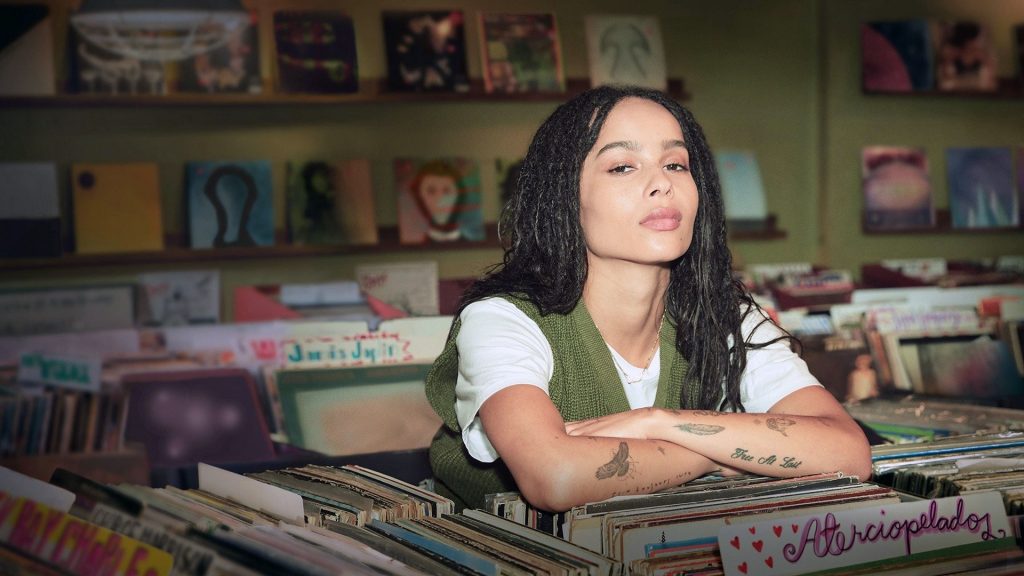By Sasha Charlemagne, Staff Reporter

The new Hulu series High Fidelity starring Zoe Kravitz brings an updated twist to a well-loved story. Based on the Nick Hornby novel of the same name, High Fidelity is the story of Rob Flemming, a record store owner who uses musical knowledge as a means to make sense of the world. In the original novel, Rob is a white man in his mid-thirties who has just been dumped by his girlfriend, Laura, and decides to reach out to every woman who has broken his heart in the past as a way to re-examine what causes his relationships to fail. Lisa Bonet, Kravitz’s mother, played one of Flemming’s love interests in the 2000 film adaptation. Kravitz plays Rob’s role in this retelling and embarks upon the same journey to confront past loves after a devastating breakup.
The popular High Fidelity film starring John Cusack is a well-known adaptation of the novel and many have drawn comparisons between Cusack’s portrayal of Rob and Kravitz’s interpretation of the role. Both are moody, lovesick characters seeking some sort of outside validation but Kravitz brings the unique elements of being Black, a woman and queer to her character. She is shown to have had relationships with women as well as men throughout the series, a factor that was not included in the film nor the original novel which adds another aspect of inclusivity into a well-known plot.
While the differences between two actors like Kravitz and Cusack are clear, it is the similarities that may be considered to be the most impactful. There is very little that changes within the main goals and arcs of the story by changing the gender, sexual orientation and race of our main character. She views the world through a different lens and is perceived differently than Cusack’s Rob but her internal struggles are the same. For those of us who loved any of the adaptations of Hornby’s novel, from the film to the Broadway show, it is fascinating to see just how easily storylines revolving around love and loss can be translated to apply across identities.
While retellings of popular stories seem to be a go-to option for studios looking to make a profit without having to come up with a fresh concept, there is something to be said about how seeing ourselves as our favorite characters can be an eyeopener. The issue of whether we should funnel our attention and support towards newly written, diverse storylines or the recreation of our favorite tales is more complicated than many may expect. While we, of course, should be interested in the telling of new and innovative storylines, the pop-cultural relevance of our favorite stories and the connections we hold with them still carry weight.
The 1997 retelling of the story of Cinderella starring Brandy Norwood gave us the first Black live-action Disney princess movie and the sale of Barbie dolls modeled after the actress in her role gave young Black girls a relatable image to associate with themes of royalty, fairytale endings and endless possibility. Of course, it is important for us to continue pushing for the funding and support for new stories starring diverse casts to create inclusive classics for the generations ahead but there is still something oddly comforting about knowing that many of your favorite characters are equally, if not more interesting when translated to relate to your own identities. It is not their existence as white or male that makes them special or interesting. The contrary is actually the case for many storylines. It is the stories themselves that we relate to and find joy in. If we can bend and twist tales we already feel so close to and have them better represent ourselves, we might be proving that there are no limitations to inclusive creativity.

